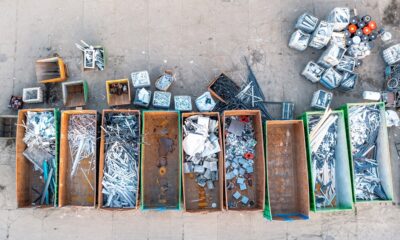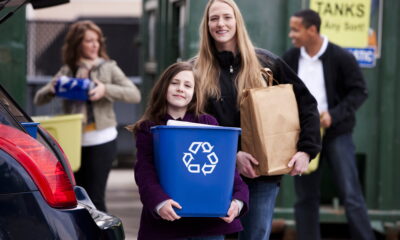Last year, the UK Environmental Audit Committee published a report on the environmental impact of disposable cups on the environment. The report was bleak to the say the least. We are actually creating a lot of problems for the environment.
The good news is that there are some ways that we can turn things around. The two steps that we will need to take include:
- Start using more paper cups
- Make sure that we recycle those cups appropriately
This can make a major impact on the environment.
Recycling Paper Cups is Seen as the Solution to Growing Waste Problem
Did you know? Paper cups were deemed to be un-recyclable by millions until last year.
Well, that might be stretching the myth a bit. However, it’s actually true that almost all paper mills rejected paper cups. Denver only started allowing recycling of paper Starbucks cups this past November. The reason behind the former bans was that the recycled fiber from paper cups cost more than raw fiber. As a result, the mills refused to resource material it could not sell. (This sounds a bit selfish for such an unselfish purpose. Don’t you think?)
This reaction was before Starbucks stellar ‘going green’ campaign led them to knock the doors of a stubborn paper mill at Wisconsin.
The Challenge
The popular coffee franchise delivered 18 trucks of used paper cups to the paper mill and ordered them to reconstruct the fiber of their dirty byproducts. After the paper mills had processed the paper cups, they’d be sent off to another collaborator. This third party (West Rock) was assigned the task of using the recycled materials to manufacture the paperboards from new Starbucks coffee cups.
Jay Hunsberger, a VP sale representative from Starbucks explained the goal behind this difficult project,
“We wanted to demonstrate that a coffee cup can be turned back into a coffee cup,”
Did the paper mills come through? Yes, they did. The used fibers inside the used paper cups were extracted out from the plastic coating that protects it from getting soggy. These were then purified and flattened to create sheets of paper.
Next, the packaging company used this recycled source to produce paperboards. After that, the paperboards made their way to Seda, who first stamped the Starbucks custom logo on the boards and reconstructed them into brand new cups. Interested to learn more? Check out the commercial footage of this environmental friendly project right here.
The Benefits
We know what you are thinking. That sounds cool and all, but what impact will it have on the environment? Here are a handful of reasons that will help you comprehend the positive effect of this venture:
- Less paper cups will be sent to the landfills to rot and decay the planet
- Can decrease the amount of deforestation that occurs to manufacture paper cups
- Promotes recycling on a bigger scale
On the whole, Starbucks has pushed the envelope when it comes to recycling. Not only does this clean project help the environment, but it influences other food chains to do the same. Moreover, when big names will start collaborating with recycle centers and paper mills then we’ll have a bigger industry for conserving paper. Hence, it instills the idea of recycling on a broader spectrum.
A correspondent from Starbucks says that,
“Starbucks advocates for a national approach to provide a more consistent experience for consumers.”
We hope that like the reusable coffee cups, this little endeavor gains the right kind of momentum. After all wouldn’t it be satisfying for you to know that your daily dose of caffeine isn’t harming the planet?
Conclusion: Recycling Paper Cups is the Key to Going Green
We feel that food service industries should take a leaf out of Starbucks’ green campaigns. They should try to collaborate with paper cup manufacturers and other food packaging companies that aim to provide cleaner, greener products.


 Environment12 months ago
Environment12 months agoAre Polymer Banknotes: an Eco-Friendly Trend or a Groundswell?

 Features11 months ago
Features11 months agoEco-Friendly Cryptocurrencies: Sustainable Investment Choices

 Features12 months ago
Features12 months agoEco-Friendly Crypto Traders Must Find the Right Exchange

 Energy11 months ago
Energy11 months agoThe Growing Role of Solar Panels in Ireland’s Energy Future






























